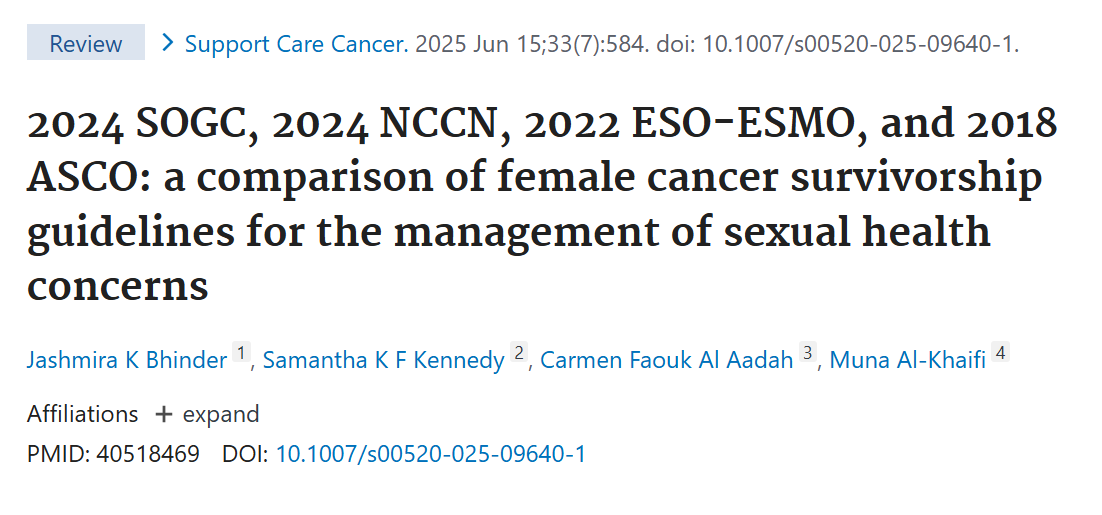Muna Al-Khaifi, GP Oncologist at Sunnybrook and Assistant Professor at the University of Toronto, shared a post on LinkedIn:
“Evidence on Vaginal Estrogen Use in Breast Cancer Survivors (Systematic Review – July 2025)
A July 2025 systematic review and meta-analysis evaluated the safety of vaginal estrogen therapy (VET) for genitourinary syndrome of menopause (GSM) in breast cancer survivors. Across 118,659 survivors (6,358 VET users), VET was not associated with increased recurrence (RR 0.87, 95% CI 0.67–1.11) and was linked to lower all-cause mortality (RR 0.80, 95% CI 0.75–0.86). The authors concluded that VET appears safe in appropriately selected patients.
Subgroup insights:
• Tamoxifen users: No increased recurrence associated with VET
• Aromatase inhibitor (AI) users: Some data suggest a possible increased recurrence risk in certain subgroups, so individualized decision-making is essential
These findings are especially relevant for survivors with persistent vaginal dryness, dyspareunia, urinary symptoms, or sexual dysfunction when non-hormonal options are insufficient.
How This Aligns with Guidelines
• NCCN – Supports VET after non-hormonal failure, especially in tamoxifen users; more caution with AI users
• ASCO – Endorses shared decision-making when symptoms persist
• ESMO / MASCC – Recommends individualized, multidisciplinary use for refractory GSM
For a broader comparison of how major survivorship guidelines address sexual health and menopause-related symptoms, you can also refer to my recent publication comparing recommendations across NCCN, ASCO, ESMO, and SOGC.”
Title: 2024 SOGC, 2024 NCCN, 2022 ESO-ESMO, and 2018 ASCO: a comparison of female cancer survivorship guidelines for the management of sexual health concerns
Authors: Jashmira K Bhinder, Samantha K F Kennedy, Carmen Faouk Al Aadah, Muna Al-Khaifi

More posts featuring Muna Al-Khaifi on OncoDaily.


